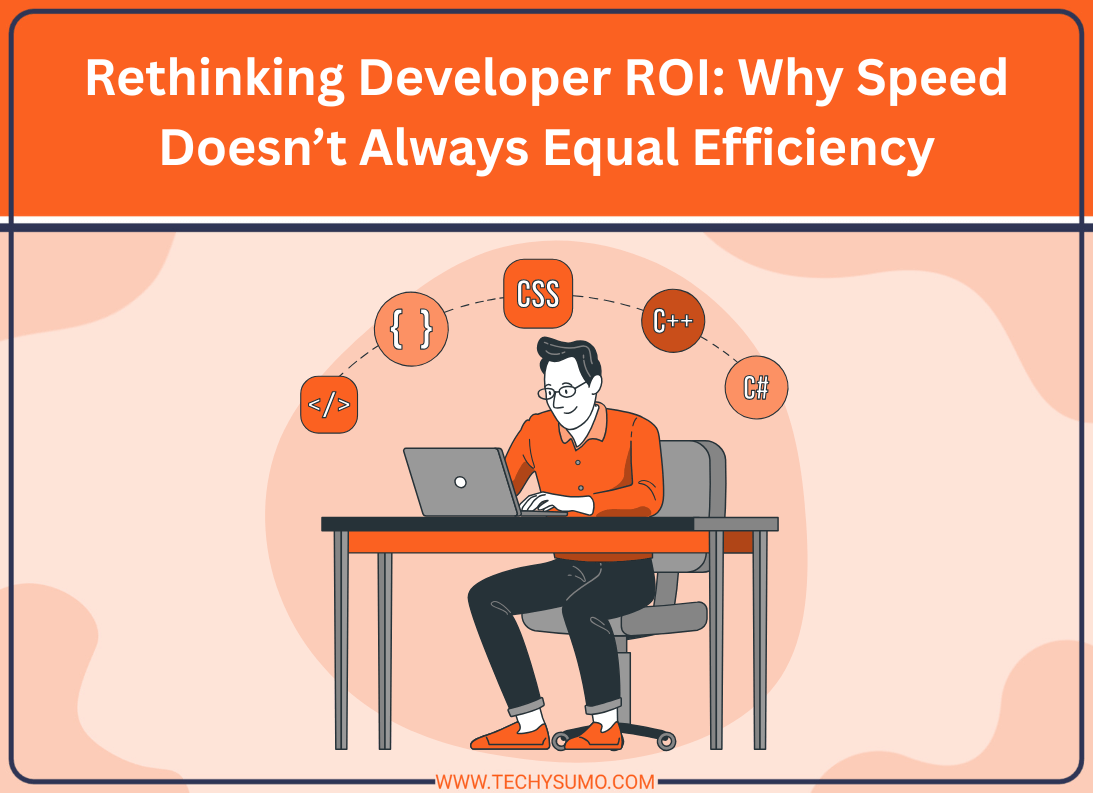In tech, we’ve been trained to chase speed. Launch fast. Ship often. Move quickly and break things. But there’s a growing realization among experienced engineers and team leads: fast doesn’t always mean good, and it certainly doesn’t always mean cheap.
Lumenalta, a tech-forward research firm, recently published findings that challenge how most companies think about developer efficiency. According to their data, some of the best-performing teams actually slow things down at key moments. And strangely enough, that’s where they see real savings.
Table of Contents
When Fast Gets Expensive
It’s easy to assume that if your team is delivering quickly, things must be going well. But if you dig a little deeper, speed can mask costly issues. Quick fixes, rushed architecture, and tight deadlines often lead to rework, missed edge cases, and bloated maintenance costs later.
That’s not efficiency, it’s short-term relief with a long-term bill.
Lumenalta’s research looked at teams across industries and found that senior developers, especially those given the space to think deeply and strategically, tend to deliver higher-quality code that stands the test of time. These aren’t coders racing to close tickets. They’re the ones pausing to ask: “Is this the right thing to build? Is this the right way to build it?”
Also Read
Thinking vs. Clicking
One of the biggest misconceptions in development is that activity equals output. If someone is churning out pull requests and merging updates daily, it feels productive. But thoughtful design, like choosing the right data structure, simplifying a system, or building something extensible, often doesn’t look busy on the surface.
Developers who are forced to rush rarely have time to do that kind of thinking. They’re working ticket to ticket, patching things together under pressure. And eventually, the cost of that technical debt adds up through bugs, downtime, rewrites, and team fatigue.
Instead of speed, Lumenalta suggests aiming for clarity, focus, and balance. The most successful teams in their study had one thing in common: they weren’t afraid to slow down for the right reasons.
Why Environment Matters More Than Tools
Hiring great developers is important. But how you support them once they’re on your team might matter even more.
Lumenalta’s findings highlight four conditions that seem to make the biggest difference:
- Time for deep work
- Support for ongoing learning
- Clear goals that connect to the business
- A culture where asking questions is encouraged
None of that sounds flashy. But when those basics are missing, developers tend to burn out, cut corners, or leave. And every time a senior dev walks out the door, you’re not just losing a salary. You’re losing context, stability, and leadership.
Companies that build strong environments tend to retain top talent longer. And they avoid the revolving door of hiring, onboarding, and losing people just when they become valuable.
Slower Can Mean Smarter
It might feel counterintuitive, but the teams that plan for focus—ones that protect developers from excessive context switching and allow time for problem-solving—actually tend to move faster over the long haul. They spend less time fixing things. They write fewer lines of code, but those lines tend to be more solid. And they make decisions that reduce future risk.
One senior engineer Lumenalta interviewed said it best: “I don’t want to be fast. I want to be right. Being right is what makes everything go faster later.”
Rethinking What You Measure
To change how we build, we have to change what we value. If your team is only measured on how much they ship or how fast they finish a sprint, you may be incentivizing short-term wins over long-term progress.
Try looking at things like:
- How often do we go back and fix things?
- Are we designing for flexibility, or just for today?
- Do our developers have time to think, or are they always reacting?
These aren’t vanity metrics. They’re signs of whether your team is set up to build with care or to churn under pressure.
The Takeaway
There’s nothing wrong with wanting to move quickly. But speed that leads to burnout, rework, and fragile systems isn’t real progress, it’s a liability dressed up as momentum.
If you’re serious about getting more from your dev team, start by giving them space. Let them focus. Encourage them to challenge assumptions. And remember: a thoughtful hour is often worth more than a frantic day.
Because in the end, it’s not the team that moves the fastest that wins. It’s the one that moves the smartest.






